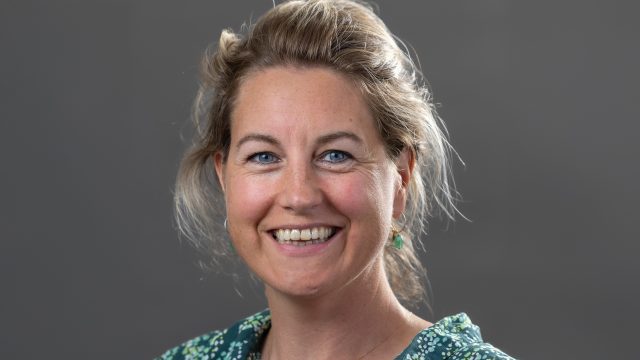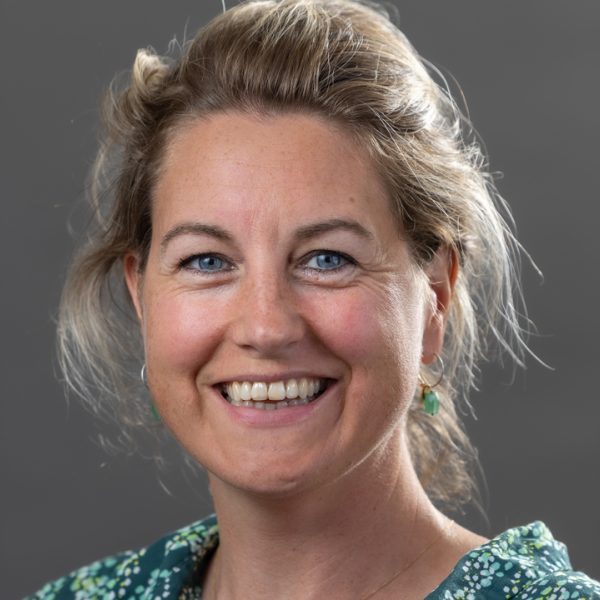GEA, genome-immunome interactions, intratumor heterogeneity, targeted-immunotherapy

Our Focus
My research focus is finding better therapies for patients with gastroesophageal cancer (GEA) by studying the biological foundation of the disease. Using 1) clinically relevant patient cohorts, 2) patient-derived cancer models, and 3) in vivo mouse models we aim to understand resistance to conventional therapies and find methods to improve those.
My group currently focusses on the following research lines:
- Identification of cancer-cell derived immune suppressive mechanisms. Using our GEA biobank we have analysed the immune infiltrate and secretum of cancer and immune cells and use this data to understand how cancer cells suppress tumour infiltrating immune cells and use this knowledge to reinstate the antitumor immune response.
- Establishing a patient-derived cancer immune coculture system to test novel immunotherapeutic strategies. This co-culture model is optimized and currently the foundation of multiple inter-institutional collaborations.
- Study the role of VEGFA in resistance to immunotherapy using a recently established immunogenic GEA mouse model.
Perform a drug-repurposing screen to find better therapies for chemotherapy-resistant GEAs.
As a physician-scientist I play a key role in different investigator-initiated trials to test novel immune stimulating treatment strategies such a the AUSPICIOUS-trial, LOAD-study and MEMENTO trial.
About Sarah Derks

Sarah Derks
My Research
Sarah Derks is a medical oncologist at Amsterdam UMC in Amsterdam, the Netherlands. She did her PhD at the pathology department of the Maastricht University Medical Center and residency training Internal Medicine and Medical Oncology Fellowship at the VU University Medical Center in Amsterdam. After acquiring a translational research fellowship from the Dutch Cancer Society, she carried out post-doctoral training (2014-2017) in the laboratory of Dr. Adam Bass at Dana-Farber Harvard Cancer Center in Boston, MA, USA, working on a variety of genome and immune oriented studies in gastroesophageal adenocarcinomas (GEA).
Having returned to the Netherlands Dr Derks started her own research group with a focus on how GEA cells shape their immune microenvironment and how a pre-existing immune infiltrate influences response to standard therapy with the ultimate goal to identify novel targeted immunomodulatory strategies and improve survival of patients with this deadly disease. Her lab currently focusses on how genome features such chromosomal instability, intratumor heterogeneity and upregulation of oncogenic or immunomodulatory genes influences the immune microenvironment and thereby response to therapy. As a physician scientist she has the unique opportunity to use fresh tumor specimen to study the disease that is actually living in the patient and use this tissue to test new therapeutic approaches. Besides laboratory oriented studies she is a PI on 2 investigator initiated trials testing novel GEA treatment strategies.
Sarah Derks is member of the Gastro-Intestinal Faculty group from the European Society of Medical Oncology, member of the Research board of the Amsterdam UMC, and Executive Board member of the Immuno-Oncology Center at Amsterdam UMC.
Awards
2017 NWO veni
2016 Young investigator award American Society of Clinical Oncology
2015 Wong Familiy Award in Translational Oncology
2012 Translational Research Fellowship Dutch Cancer Society
2004 Kootstra Talent Fellowship
Key Publications
van den Bosch T, Derks S, Miedema DM. Chromosomal Instability, Selection and Competition: Factors That Shape the Level of Karyotype Intra-Tumor Heterogeneity. Cancers (Basel) 2022. doi:10.3390/CANCERS14204986.
de Klerk LK, Goedegebuure RSA, van Grieken NCT et al. Molecular profiles of response to neoadjuvant chemoradiotherapy in oesophageal cancers to develop personalized treatment strategies. Mol Oncol 2021; 154:901–914
Goedegebuure RSA, Harrasser M, de Klerk LK et al. Pre-treatment tumor-infiltrating T cells influence response to neoadjuvant chemoradiotherapy in esophageal adenocarcinoma. Oncoimmunology 2021. doi:10.1080/2162402X.2021.1954807.
de Klerk LK, Patel AK, Derks S et al. Original research: Phase II study of pembrolizumab in refractory esophageal cancer with correlates of response and survival. J Immunother Cancer 2021; 99:2472.
Derks S, de Klerk LK, Xu X et al. Characterizing diversity in the tumor-immune microenvironment of distinct subclasses of gastroesophageal adenocarcinomas. Annals of Oncology 2020; 31:1011–1020.
Pectasides E, Stachler MD, Derks S et al. Genomic Heterogeneity as a Barrier to Precision Medicine in Gastroesophageal Adenocarcinoma. CANCER DISCOVERY | 2018. doi:10.1158/2159-8290.CD-17-0395.
Kim J, Bowlby R, Mungall AJ et al. Integrated genomic characterization of oesophageal carcinoma. Nature 2017 541:7636 2017; 5417636:169–175.
Derks S, Nason KS, Liao X et al. Epithelial PD-L2 expression marks Barrett’s esophagus and esophageal Adenocarcinoma. Cancer Immunol Res 2015; 310:1123–1129.
Members
| Sarah Derks Group leader | Daniëlle Polling PhD | Jasper Sanders Phd student |
| Jens Seidel Research Associate | Julia Myrda PhD | Kayla Brugman Phd student |
| Maryam Akbarzadeh Postdoctoral researcher | Rok Žiberna Phd student | Sterre Kruize PhD |